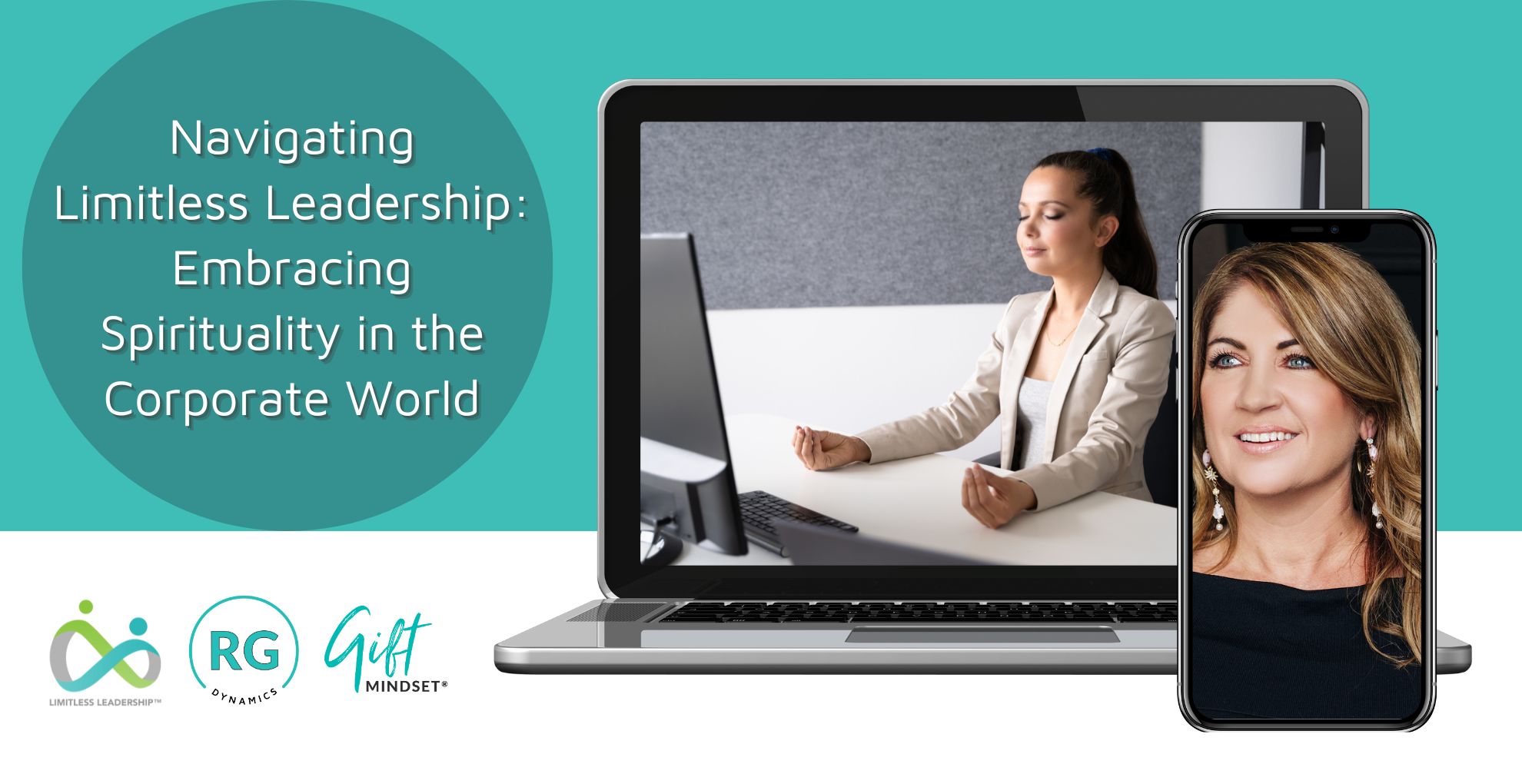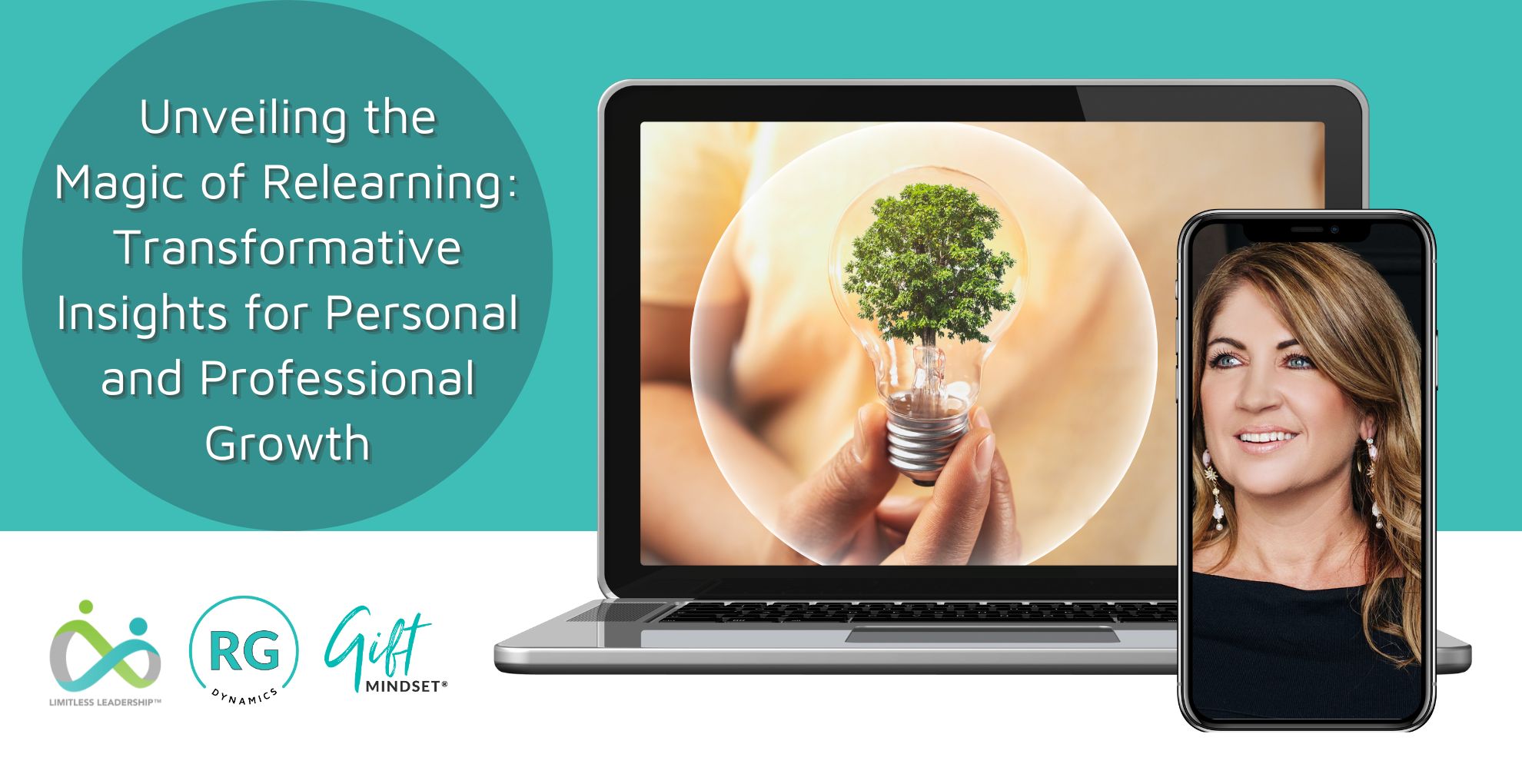In the ever-changing world of corporate leadership, the concept of spirituality may seem out of place. Along with the pandemic, AI and recently being diagnosed with breast cancer, it is something I never thought I’d be experiencing, let alone sharing my thoughts through writing and research.
Traditionally, discussions of spirituality have been narrowly focused on personal or religious realms, separate from our professional lives.
But never say never; as the landscape of leadership continues to evolve, there is a growing recognition of the importance of spirituality in guiding and shaping effective leadership practices.
For over 18 years, my team and I have worked with hundreds of leaders and teams, creating “Limitless Leadership,” that is, leadership of self and teams where we learn, unlearn, relearn, and evolve. Limitless Leaders continually learn and tap into the 5 Dimensions of Energy being: spiritual, mental, physical, social, and emotional energy.
Spirituality can mean different things to everyone, but for me, it’s about having a higher purpose, connecting to oneself and others, and coming from a place of empathy and compassion.
But what exactly does it mean to be a spiritual leader in the corporate world? And how can incorporating spiritual principles enhance your leadership effectiveness? These are questions worth exploring as we delve into the role of spirituality in corporate leadership.
At its core, spirituality transcends religious affiliations and encompasses a broader sense of purpose, meaning, and connection to something greater than oneself. It encompasses values such as compassion, empathy, integrity, and mindfulness, which are integral to effective leadership in any setting.
Spiritual leadership emphasises the importance of leading with authenticity, compassion, and a sense of higher purpose, rather than simply focusing on bottom line profit or organisational goals and strategy.
So, are you a spiritual leader?
Here are some questions I’ve shaped to help you reflect:
What is your leadership purpose?
Take a moment to reflect on your deeper purpose as a leader. Beyond achieving business plans and objectives, what drives you to lead? Connecting with a sense of purpose can provide clarity and inspiration, guiding your actions with a greater sense of meaning and fulfilment.
How do you cultivate authenticity in your leadership?
I believe authenticity is a cornerstone of spiritual leadership. Are you able to show up as your true self in your leadership role? Do you lead with transparency, honesty, and vulnerability? When you lead with your authentic self, I believe this can foster trust and rapport with your team, creating a supportive and inclusive work environment.
Are you practising compassion and empathy?
Empathy and compassion are essential qualities of spiritual leadership.
Do you take the time to understand your team's perspectives and emotions? How do you demonstrate care and concern for their well-being? By practising empathy and compassion, you can create a culture of support and belonging within your organisation.
How do you integrate mindfulness into your leadership practices?
Mindfulness involves being fully present and engaged in the moment, without judgment or distraction. Do you incorporate mindfulness practices, such as meditation, reflection, or conscious breathing, into your leadership? Mindfulness can help you stay grounded, focused, and resilient amidst the challenges of leadership.
Are you fostering a sense of community and connection?
Spiritual leadership focuses on the importance of fostering a sense of community and connection within your workplace. Do you try to build relationships and create opportunities for collaboration and teamwork? By fostering a sense of belonging and shared purpose, you inspire greater engagement and commitment from your team.
“Always put people, before process, before progress”.
You may wonder, “What are the benefits of bringing spirituality into my leadership?”
I have a few insights into what I have seen first-hand using the above strategies with my team and clients and working with numerous companies to bring this in.
Enhanced Decision-Making: Spiritual leaders often make decisions guided by principles of integrity, ethics, and values, rather than solely focusing on short-term gains. By aligning decisions with deeper values and purpose, they create a more sustainable and ethical approach to leadership. Bringing in logic, heart (compassion) and intuition I’ve seen many leaders making more balanced and impactful decisions.
Resilience and Well-Being: Incorporating spiritual practices such as mindfulness and self-care can enhance leaders' resilience and well-being. By looking after your own well-being, you may be better equipped to navigate challenges and inspire your teams to do the same.
Inspiring Others: Spiritual leaders lead by example, inspiring others to embrace their authentic selves and cultivate their own purpose and meaning. Embodying values such as authenticity, empathy, and compassion create a ripple effect that fosters positive change and transformation within their workplaces.
I have always been a spiritual person, so it excites me that there is finally an interest in and need for the role of spirituality in corporate leadership. Remember, it is not about imposing religious beliefs or dogma but rather about embracing authenticity, compassion, mindfulness, and purpose.
When we bring these qualities into our leadership practices, we can create more meaningful and fulfilling work environments, inspire greater team engagement and commitment, and ultimately drive sustainable success for our business or workplace.
So, are you a spiritual leader? This is a question worth considering as you continue your Limitless Leadership journey.
Lead to be limitless!





